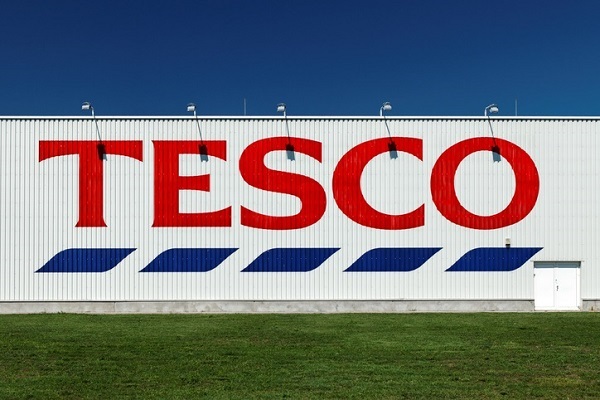ii view: Tesco keeps spending to stay ahead of the pack
24th April 2023 11:26
by Keith Bowman from interactive investor
Benefiting from scale and deep pockets, and with a forecast dividend yield of almost 4%. Buy, sell, or hold?

Full-year results to 25 February
- Revenue up 7.2% to £65.76 billion
- Adjusted operating profit down 6.9% to £2.63 billion
- Net debt down 0.2% to £10.5 billion
- Final dividend of 7.05p per share
- Total dividend for the year unchanged at 10.9p per share
- Launching a new £750 million share buyback programme
Guidance:
- Expects full-year adjusted operating profit to be broadly unchanged
Chief Executive Ken Murphy said:
“The resilience and agility that we have developed over the last few years has created a sustainable competitive advantage that leaves us well-placed to deal with any challenges that may arise. It has enabled us to deliver another strong performance across the Group, whilst continuing to make strategic progress.
“Our focus on customer satisfaction, market share and free cash flow is working. It is delivering strong results and enabling us to re-invest in the business, maintain a strong balance sheet and return cash to shareholders. I am really confident that by investing to give customers the best possible value and continuing to look after our colleagues, we will create further significant value for every stakeholder in Tesco."
- Learn more: SIPP Portfolio Ideas | How SIPPs Work | Transfer a SIPP
ii round-up:
Starting out as a market stall in 1919, Tesco (LSE:TSCO) today employs over 340,000 people across its stores and distribution centres in both the UK, Ireland and Central Europe.
In 2017, it purchased UK food wholesaling business Booker, giving it exposure to both restaurants and other food convenience stores and businesses.
Headquartered in Welwyn Garden City, Hertfordshire, it also owns Tesco Bank.
For a round-up of these latest results announced on 13 April, please click here.
ii view:
Tesco is the largest retailer listed on the UK stock market with a stock market value of over £20 billion. Rival retailers Sainsbury (J) (LSE:SBRY) and Ocado Group (LSE:OCDO) are both valued at under £7 billion. Its UK retailing business generates its biggest slug of sales at around 62%, followed by Booker at around 13%, fuel at approximately 12% and Central European sales at just over 6%. Irish sales at 4% and its banking operations make-up the balance.
For investors, a combination of elevated prices and high interest rates are continuing to squeeze the ability of consumers to spend. Costs generally for businesses have risen, competition across the sector and including discounters Aldi and Lidi remains intense, while the total dividend for the full year was left unchanged at 10.9p per share.
- 10 shares for investors wanting defensive options
- The Week Ahead: NatWest, Barclays, GSK, Taylor Wimpey and more
- 15 Magic Formula shares for good quality at cheap prices
On the upside, Tesco’s UK market share has stayed robust at 27.3%, helped by its highly competitive customer offering. Cost savings continue to be funnelled into competitive shelf prices, new Express stores are being opened, retail customers numbers for its wholesale business are growing pushing Booker sales up 12% year-over-year, while shareholder returns remain a focus, with easier to adjust share buybacks boosted by a new £750 million scheme over the year ahead.
On balance, and with the group’s retail free cash flow of over £1 billion helping it both invest in its customer offering and return cash to shareholders, this retailing giant remains deserving of a place in diversified portfolios.
Positives
- Strong market share
- New £750 share buyback programme
Negatives
- Intense industry competition
- Uncertain economic outlook
The average rating of stock market analysts:
Buy
These articles are provided for information purposes only. Occasionally, an opinion about whether to buy or sell a specific investment may be provided by third parties. The content is not intended to be a personal recommendation to buy or sell any financial instrument or product, or to adopt any investment strategy as it is not provided based on an assessment of your investing knowledge and experience, your financial situation or your investment objectives. The value of your investments, and the income derived from them, may go down as well as up. You may not get back all the money that you invest. The investments referred to in this article may not be suitable for all investors, and if in doubt, an investor should seek advice from a qualified investment adviser.
Full performance can be found on the company or index summary page on the interactive investor website. Simply click on the company's or index name highlighted in the article.